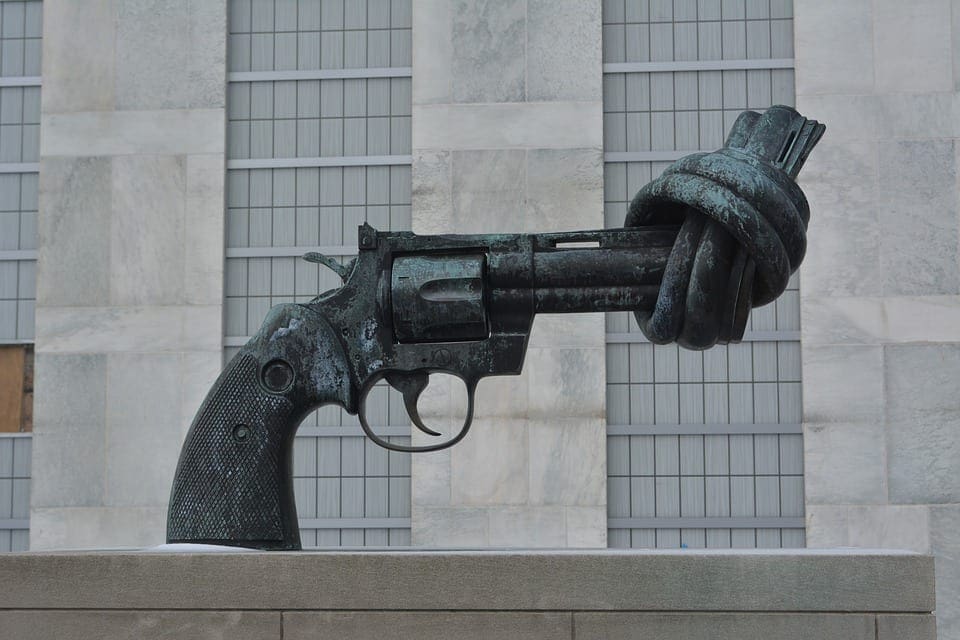Walmart is responding to gun control activists by putting an end to the sales of handgun ammunition and short-barrel rifle ammunition in its stores.
Following the deadly shooting in July at a Mississippi Walmart store and another in August at a Walmart in El Paso, Texas, the company was heavily criticized by the media, gun control advocates, politicians, and even some of its own employees for not discontinuing the sales of weapons.
In addition to the changes to the retailer’s inventory, Walmart will also ask customers to stop openly carrying firearms in stores located in states where “open carry” is legal. Concealed carry is still OK, however.

In a memo distributed to employees, Walmart CEO Doug McMillon said that fear that “someone might misinterpret a situation, even in open carry states, could lead to tragic results.”
“We hope that everyone will understand the circumstances that led to this new policy and will respect the concerns of their fellow shoppers and our associates.”
To the mega retailer, these changes are significant because up until now Walmart had a 20% share of the market for ammunition while holding a 2% firearms market share. Now, the firm expects its ammunition share to drop to a range of 6% to 9%.
“We know these decisions will inconvenience some of our customers, and we hope they will understand,” McMillon said. “As a company, we experienced two horrific events in one week, and we will never be the same.”
But while this move may appear unprecedented, Walmart is no stranger to changes in firearm sale policies following shootings.
In the 1990s, the company stopped selling handguns across the country with the exception of Alaska and in 2015, it stopped selling semi-automatic weapons such as the AR-15 rifle. After the Parkland, Florida, shooting in 2018, Walmart changed its age policy and stopped selling guns and ammunition to people under 21.
While Walmart has a right to change its policies as it sees fit, the company is responding to pressure coming from a faction of society that does not represent the country’s population of nearly 330 million people. As a matter of fact, Walmart’s customers are as diverse as can be, and it’s more than natural to expect that communities in certain parts of the country will greatly mourn the retailer’s latest decision. Nevertheless, Walmart isn’t the only retailer in America and it certainly won’t be the last to respond to market demands.
As residents from gun-loving states look for another source for their ammunition, they will be doing so peacefully and without holding a grudge against the firm. And that’s because whatever Walmart does, it won’t restrict a person’s right to choose where he or she shops.
Unlike government, private companies will respond to pressure and demand, but they alone cannot dictate what other firms will do in response. In a truly open market, other firms would see an opportunity for growth by offering precisely what Walmart won’t.
But in a country with a strong central government like America, rigid top-down rules have the opposite effect.
Time to Split Up
In a country with such a diverse number of communities, cultures, economies, and geographies, there can never be a one-size-fits-all approach to anything. Unfortunately, gun control activists (and even some gun right groups) seem to ignore this reality, pushing for rules that impact everybody.
As Mises Institute’s Jeff Deist explained, our right to self-defense “flows naturally from self-ownership of our bodies,” meaning that a government-backed right to gun ownership is unnecessary, as that has long been our right, regardless of what federal authorities say.
Like Walmart, communities that share the same values, background, and culture should be able to say “no” to a particular rule without fearing being reprimanded by the federal government. Unfortunately, Americans mostly frown upon the idea of independence these days, making it hard for an effective decentralizing movement to spring up.

























